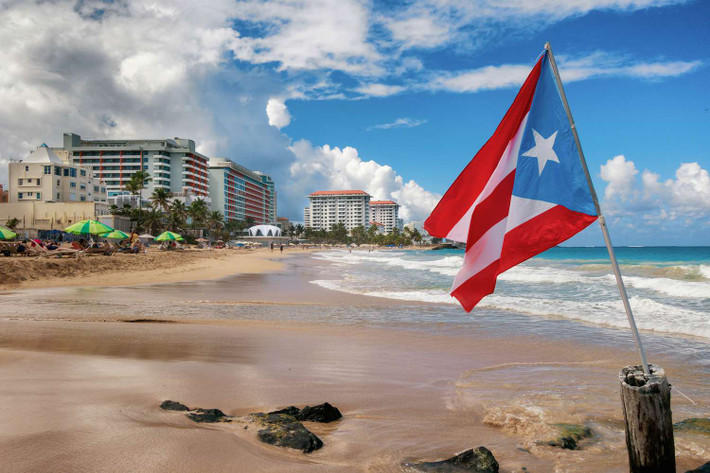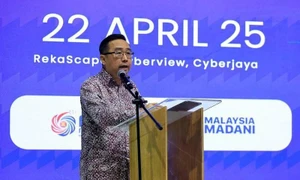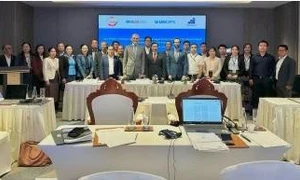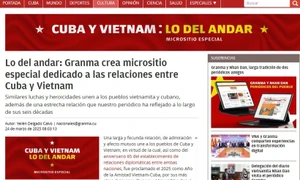
The Act to Facilitate the Implementation of Remote Work in the Private Sector and to Incentivize the Establishment of Airline Home Bases in Puerto Rico,” also known as Act No. 27-2024, was signed by the governor of Puerto Rico on January 17 and went into effect immediately. The act addresses the laws that govern the employment relationship of remote employees working from Puerto Rico for covered employers, whether they are domiciled in Puerto Rico or elsewhere. It also applies to airline employees who have collective bargaining agreements.
The act applies to employers that are not dedicated to trade or business, or the business of sale of taxable items according to the Puerto Rico Internal Revenue Code (Act 1-2011), as amended, and other tax legislation or regulation, including the Puerto Rico Department of Finance’s interpretation.
Unpacking the Act
The Puerto Rico Internal Revenue Code, as amended by Act 52-2022, states that being “engaged in trade or business in Puerto Rico” includes the rendering of services in Puerto Rico at any time during the taxable year, but does not include:
- Trading in stocks and securities
- Trading in commodities
- Maintaining employees in Puerto Rico if:
- at no time during the taxable year does the employer have an office or other fixed place of business in Puerto Rico;
- at no time does the employer have economic nexus with Puerto Rico;
- the employer is not considered a merchant in accordance with Section 4010.01 of the Puerto Rico Internal Revenue Code;
- the remote employee is not an officer, director, or majority shareholder of the taxpayer;
- the services rendered by said employee are for the benefit of clients or businesses of the taxpayer having no nexus with Puerto Rico; and
- the taxpayer reports the income paid to the remote employee in a federal W-2 form or a 499R-2/W-2PR form.
Per Act 52-2022, allowing employees to perform remote work from Puerto Rico is not considered an economic nexus with Puerto Rico, even when:
- the office in the home of the remote employee is necessary for the job or is a condition of the job,
- there is a business purpose for allowing the use of the employee's home as their office,
- the employee is required to perform certain basic job duties from an employer's location, and
- some of the office expenses incurred by the remote employee are reimbursed by the employer.
Act 52-2022 defines “remote employee” as an individual who performs services as an employee for the benefit of a nonresident person.
A nonresident person includes:
- an individual who is not a resident of Puerto Rico;
- a trust where the beneficiaries, trustees, and grantors are not residents of Puerto Rico;
- an estate where the grantor, heirs, legatees, or executors are not from Puerto Rico, or the deceased person was not from Puerto Rico; or
- a foreign entity.
“Services” only includes services that have no nexus with Puerto Rico rendered to an employer that complies with the provisions of Section 1010.01(a)(40)(D) of the Puerto Rico Internal Revenue Code.
Under Act 52-2022, the employer does not have to withhold Puerto Rico income taxes on covered remote workers, but the remote workers are still required to comply with the personal income tax rules of the Puerto Rico Treasury Department, report any taxable income, and make estimated tax payments on a quarterly basis.
Act 52-2022 dealt with tax considerations and did not address the employment laws that apply to remote workers in Puerto Rico. The new act clarifies the applicability of local employment laws for remote workers, aiming to facilitate remote work on the island.
Remote Employees Domiciled in Puerto Rico
Pursuant to Article 4 of the Act 27-2024, employment relationships will be governed by employment agreements and are excluded from local labor laws, unless expressly provided otherwise, if
- the employee is classified as an executive, administrator, or professional under the Fair Labor Standards Act and regulations of the Puerto Rico Department of Labor and Human Resources;
- the employee is domiciled in Puerto Rico;
- the employer is covered by the act; and
- the employee performs the work remotely.
To be domiciled means to be physically present and to have the intent to remain in Puerto Rico indefinitely, as defined in Article 87 of Chapter 4 of Puerto Rico’s Civil Code (Act 55-2020).
The applicability of Act 45-1935, Act 139-1968, and Act 428-1950 is conditioned on the employer providing the employee workers’ compensation, nonoccupational insurance, and if applicable, drivers’ insurance, that is equal to or more than what is established by these laws. Employers must also comply with local unemployment laws (Act 74-1956), except where the employee can apply for the benefit in another jurisdiction.
Remote Employees Not Domiciled in Puerto Rico
Pursuant to Article 5 of the act, where a nondomiciled employee voluntarily relocates to Puerto Rico to work remotely for an employer covered by the act, the employer will be exempt from complying with all local labor laws, including benefits, obligations, insurance, and any other provisions applicable to such employment relationship in Puerto Rico.
The employment relationship of remote workers not domiciled in Puerto Rico will be governed solely by what is agreed in the employment contract or, in the absence of an agreement, by the applicable law of the jurisdiction where the employee is domiciled. The provisions of Article 5 shall cease to apply when the employee becomes domiciled in Puerto Rico after the employer's consent to this determination. In this case, the employment relationship will be, according to the Article 4 provisions, applicable to remote employees domiciled in Puerto Rico.
Airline Employees
Employees covered by collective bargaining agreements of airlines that establish air bases in Puerto Rico, as of January 17, are excluded from labor legislation in Puerto Rico. The terms and conditions of employment for these unionized employees will be governed exclusively by the provisions of their collective bargaining agreements. This provision of the act is not limited to the definition of “employers” in the act nor does it require remote work.
Implications for Employers
The act—which applies to employers who are not dedicated to trade, business, or the business of sale of taxable items according to the Puerto Rico Internal Revenue Code—clarifies which employment laws apply to remote workers in Puerto Rico. Employers should evaluate whether to allow remote work from Puerto Rico, pay attention to and review the domicile status of remote workers, and enter into appropriate employment contracts specifying the terms and conditions of employment of remote workers in accordance with the act.
Employers should also ensure that their employment policies and practices comply with the act’s provisions.
The Puerto Rico Department of Labor and Human Resources is in charge of providing advice to employers and employees about the provisions of the new statute and will be creating informational materials to communicate the statute’s provisions. Employers should be on the lookout for that additional guidance.























